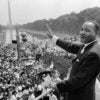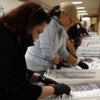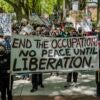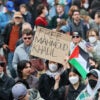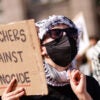Just last month, the U.S. Census Bureau revealed that the poverty rate has not changed significantly since the previous year: 46.2 million, or roughly 15 percent, of Americans are defined as “poor.”
While poverty in the United States is not the destitution and depravation most people think of when they hear the word, this number nonetheless represents a significant number of individuals and families failing to achieve self-sufficiency.
The Daily Signal depends on the support of readers like you. Donate now
Big-government advocates would attribute increased rates of poverty to a lack of government investment in welfare programs, but for the last five decades, the U.S. has pumped nearly $20 trillion into welfare. The welfare system has grown to gargantuan proportions and expanded to roughly 80 different federal programs.
Why hasn’t the system succeeded in helping the poor? Because it is based on the assumption that poverty is simply a problem of material need.
But in many cases, poverty is rooted in deeper problems, ranging from rising rates of fatherlessness to the devastation of drug and alcohol addiction. Poverty of this type ultimately involves a failure of relationships, and its cure lies in the reestablishment of relationships, trust, and community. Such healing and development requires authentic, long-term personal commitment that a government welfare system cannot offer.
The good news is that thousands of examples of effective, transformative outreach exist in the work of grassroots leaders who are serving many of the most devastated neighborhoods in our nation today. A recent summit hosted by The Heritage Foundation and the Center for Neighborhood Enterprise brought concerned legislators together with many of these community leaders to learn of the work they do, of the transformations they have engendered, and what can be done to support and expand their efforts.
Among the community leaders was Jubal Garcia, director of the Outcry in the Barrio ministries, which was launched by his parents more than 40 years ago when they turned their humble one-bedroom home into a safe haven for drug addicts and alcoholics in their community.
Since that time, the program has expanded to 100 sites in five countries, including a $3.6 million rehabilitation center in its home base of San Antonio. Over the decades, thousands of men and women have reclaimed and renewed their lives through the ministry. Although the outreach has grown in scope and scale, the essential principles of Outcry in the Barrio have not changed.
In fact, the essential elements of Outcry in the Barrio are identical to those of a spectrum of grassroots leaders who told about their transformative outreach to addicts and alcoholics. Like many of their counterparts, the Garcias had firsthand experience with the devastation of the addictions they address. Their passion and commitment is fueled by gratitude for their own transformation.
In their journey to recovery, addicts and alcoholics are immersed in the supportive, understanding environment of a group home with house parents who, like the Garcias, provide unconditional, consistent care.
But that parental love is coupled with guidance, limits, discipline, and an expectation of personal responsibility and reciprocity. Recovering addicts provide support for others who are taking their first steps toward freedom. The end of addiction is followed by a slow and laborious process of development in which old habits are broken and new qualities of character begin to form.
“That is where the hard work is,” said Garcia. “Addiction can be broken in an instant, but it is harder to live in freedom than in bondage, so there is that tendency to go back. Freedom is more difficult than bondage, because bondage does not involve responsibility.”
Such wisdom, empathy, and impassioned commitment can serve as the cornerstone of a powerful new vision of an anti-poverty agenda for our nation.
The government safety net may be able to provide temporary material support for those with nowhere else to turn. But the poverty problem in America is much more complex. That’s where the relational work of Outcry in the Barrio and many other groups can have dramatic effects where the War on Poverty has failed.












